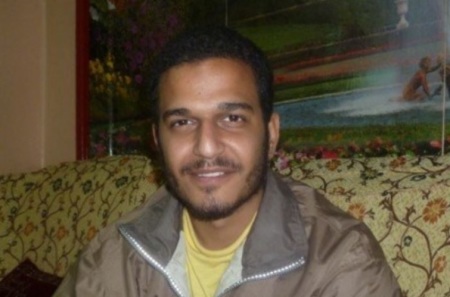Egypt releases Coptic Christian activist after 2 years in pretrial detention

Religious freedom advocacy organizations are praising the Egyptian government for releasing from detention a Coptic Christian activist who has spoken out against the mistreatment faced by Coptic Christians in the country.
Ramy Kamel was released from prison Saturday after spending more than two years in detention for what the U.S. Commission on International Religious Freedom and the advocacy group Coptic Solidarity described as “spurious” charges.
Specifically, Kamel was accused of joining a terror group and broadcasting false information and receiving foreign funding. But supporters say he was jailed because of his journalism and human rights activism.
Advocacy groups, including In Defense of Christians and International Christian Concern, expressed gratitude for his release while maintaining that Egypt has a long way to go to ensure equal treatment of Coptic Christians under the law.
“We applaud the Egyptian government for the release of Ramy Kamel,” said IDC Executive Director Richard Ghazal in a statement. “While the Egyptian government of President Sisi, in recent years, has demonstrated incremental progress through constitutional reforms, there is still much more work to be done to afford Coptic Christians equal citizenship in their native homeland.”
ICC President Jeff King said in a statement that the organization welcomes Kamel’s release after years of advocacy.
“Despite this victory, we cannot ignore the fact that Egypt has a long record of pursuing superficial human rights changes in an attempt to manage its international reputation,” King said. “But Egypt’s human rights record is equally clear: the situation is very bad. And for Christians, who are already forced to live on the edge of society, the consequences can be devastating.”
Kenneth Roth, the executive director of the human rights advocacy group Human Rights Watch, reacted to Kamel’s release on Twitter.
“Great that President Sisi’s Egyptian government finally releases Coptic rights activist Ramy Kamel after wrongfully forcing him to spend two years in detention. He never should have been jailed. There are tens of thousands of imprisoned Egyptians like him.”
Great that President Sisi's Egyptian government finally releases Coptic rights activist Ramy Kamel after wrongfully forcing him to spend two years in detention. He never should have been jailed. There are tens of thousands of imprisoned Egyptians like him. https://t.co/9MAgg3WL1e
— Kenneth Roth (@KenRoth) January 10, 2022
Ned Price, a spokesperson for the U.S. State Department, issued a statement to Al-Monitor State Department Correspondent Elizabeth Hagedorn encouraging “the government of Egypt to continue additional releases of long-term detainees.”
"We welcomed the release this weekend of activists Ramy Kamel and Ramy Shaath from pre-trial detention in #Egypt," @StateDeptSpox says.
— Elizabeth Hagedorn (@ElizHagedorn) January 11, 2022
"We encourage the government of Egypt to continue additional releases of long-term detainees."
According to the Jubilee Campaign, a non-profit organization that “promotes the human rights and religious liberty of ethnic and religious minorities in the most oppressive countries,” Kamel’s arrest occurred “directly after he applied for a Swiss visa to attend the UN Forum of Minority Issues in Geneva as a speaker on the forced displacement of and discrimination against Coptic Christians.”
“Kamel was ambushed and arrested in his home on 23 November 2019 after he had been documenting attacks on Coptic Christian churches and houses of worship in Egypt,” the Jubilee Campaign reported. “Upon his arrest, which was carried out without a warrant, police also confiscated personal information documents, his computer and cellphone, and even his camera.”
The Jubilee Campaign said it is believed that “Kamel [had been] physically assaulted by the police as a means of acquiring his passwords for his electronic devices, and that he [had] faced other means of cruel treatment in detention, including being denied medication for his asthma and high blood pressure conditions.” Additionally, Kamel reportedly received “extraordinarily few visits from his family or legal counsel.”
Open Doors USA, which monitors persecution in over 60 countries, ranks Egypt as the 16th worst country in the world for Christian persecution on its 2021 World Watch List.
Egypt is home to more than 16 million Christians, who account for a little less than one-sixth of the total population.
Open Doors USA attributes the adverse treatment of Christians in Egypt to “dictatorial paranoia.” The most common acts of persecution against Christians in the African nation include “Christian women being harassed while walking in the street” and “Christian communities being driven out of their homes by extremist mobs.”
A “lack of serious law enforcement,” combined with the “unwillingness of local authorities to protect Christians,” compounds the danger faced by the religious minority in Egypt.
Ryan Foley is a reporter for The Christian Post. He can be reached at: ryan.foley@christianpost.com





















